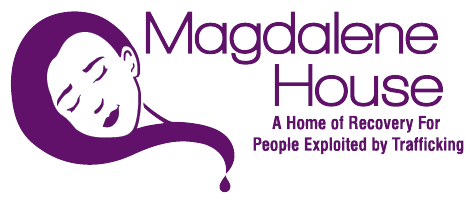Who Do We Help?
Magdalene House Society assists those who have been exploited through human trafficking. Trafficking is part of a continuum of violence that can include child abuse, domestic violence, sexual assault and rape. Trafficking typically begins with a betrayal of trust, lured by false promises: a runaway offered a safe home, girls promised jobs as models or domestic workers and most often girls who thought their trafficker was their boyfriend. When women and girls are coerced into the sex industry, they are often then forced into committing crimes such as prostitution-related offences and drug trafficking.
The traumas associated with human trafficking are lengthy and deep; betrayal of trust, extreme psychological abuse, repeated physical and sexual abuse, excessive work and denial of basic necessities, and the stigma and shame many trafficked girls and women experience. Most victims of trafficking experience theses traumas before their 18th birthday, when their brains are still developing and their sense of identity is still being formed.
Our goal is to help with the restoration of self-worth and sense of dignity so that our clients can heal from their experiences of exploitation. Our program is designed to build self-esteem and confidence, and to promote psychological, emotional, physical and spiritual healing.
It can happen to anyone and it can happen so quickly.
WHEN MAROUSSIA WAS 14, the world seemed good. She lived in a comfortable middle-class neighbourhood in Winnipeg with her parents and two brothers. The family had game night every Thursday, and she baked blueberry pies with her mom and played in the big open field across from her house. After school, she hung out with her friends at the mall.
She never stayed late at the mall—her parents wouldn’t allow it—but it didn’t matter. She and her giggling friends were soon noticed by a couple of guys who also hung out at the mall. After a while, the men started to approach the girls oh-so casually. They were older, so at first Maroussia and her friends wouldn’t talk to them. But the men started buying the girls snacks, then would sit near them and chat. “I didn’t really see anything wrong with it,” she says. After all, the men never tried to touch them. They just listened and asked a lot of questions. They genuinely seemed to care. They said if the girls ever needed anything, they’d be there for them.
Read Maroussia’s full story “THE TRAP” as featured in SHE magazine of Canadian Womens Foundation.

